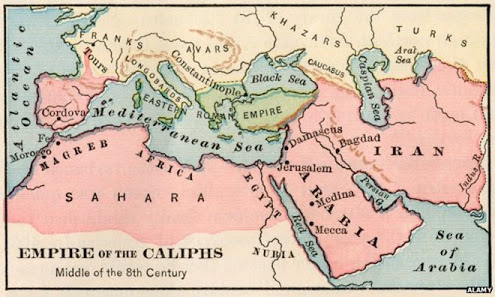Legitimacy: The Caliphate and the State

In Europe, separate states acquired legitimacy; in Islam the universal caliphate and 'umma retained the fullest respect. Muslim philosophers, not unlike Augustine and Hobbes, derived the need for the Shari'a and caliph from the strife-prone nature of humans. Some Western thinkers adopted the view of Cicero (and later of Locke) that human society and the state develop by consensus. Marsilius of Padua's theory of the state in some ways resembled the Muslim theory of the caliphate; he was probably influenced by Ibn Rushd, but Marsilius was without influence. Muslims, drawing on Iranian monarchical theory, saw the ruler's responsibilities as extending to the social and economic infrastructure. Europeans saw the state, Muslims the caliphate, as impersonal offices.